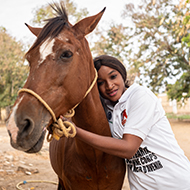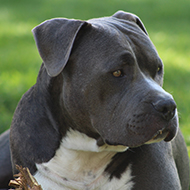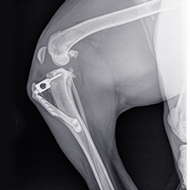Professor Post working on the burger in the lab
Mixed reaction to potential food of the future
A laboratory-grown burger has been cooked and tasted for the first time, during an event in London on Monday, August 5.
The tasting was hailed a success by Professor Mark Post, of Maastricht University in the Netherlands, who has been working on the burger's development for many years.
It was produced using a sample of muscle cells taken from a cow, which were then grown into small strands of meat. Both colour and flavour were added to the burger using ingredients that included salt, egg powder, breadcrumbs, red beet juice and saffron.
Cooked in a frying pan by chef Richard McGeown, and tasted by food experts Josh Schonwald and Hanni Rützler, the burger received mixed feedback.
There is some intense taste – it's very close to meat, but it's not that juicy
"The mouthfeel is like meat [but] I miss the fat," said Mr Schonwald, a Chigago-based food writer. "There's a leanness to it, but the general bite feels like a hamburger.
"What was consistently different was flavour."
Meanwhile, Ms Rützler, an Austrian food trends researcher, commented: "I was expecting the texture to be more soft. There is some intense taste – it's very close to meat, but it's not that juicy.
"The consistency is perfect, but I miss salt and pepper."
Ms Rützler taking a bite of the cultured meat
Once fully developed, the burgers may help meet demand from a growing world population, and relieve pressure for global food producers.
Many animal welfare campaigners have given their support for the method – including People for the Ethical Treatment of Animals (Peta), who tweeted "Lab grown meat? If it reduces the suffering of animals, we're for it!".
However, concerns have also been voiced that the breakthrough could put farmers and food producers out of business in the future.
For now, the burgers will be undergoing further developments.
"We set out to prove it could be done, and today we have done exactly that," said Professor Post. "This has been the culmination of five years' work and I'm delighted that the hard work has paid off.
"The next steps, if this is going to be a viable product in the future, are to refine existing techniques so that we can scale up production. At the moment it is slow and expensive."






 Birmingham Dogs Home has issued an urgent winter appeal as it faces more challenges over the Christmas period.
Birmingham Dogs Home has issued an urgent winter appeal as it faces more challenges over the Christmas period.
